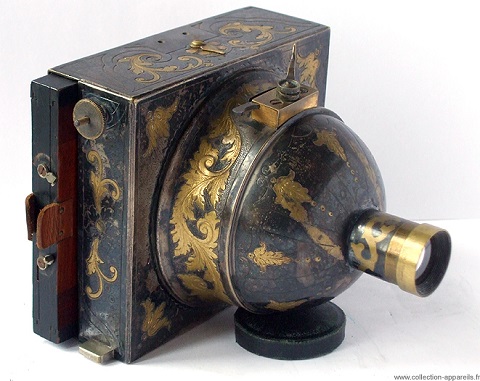
Digital photography has bestowed many gifts, and some few horrors: selfies, naturally, as well as even less dignified self-portraits, of the sort certain politicians send out; mass surveillance, as well as the ability of average citizens to produce important pieces of evidence and to document history; hard times for professional photographers, as well as the full democratization of the medium. What it has almost rendered obsolete is the mechanism that enabled photographic images in the first place. In place of cameras, we have smartphones, the hated Glass… maybe sometime in the future no external device at all. Given this trajectory, it’s entirely understandable that all sorts of people—steampunks, antiquarians, Luddites, analog fetishists, middle-age hipsters, etc.—would grow nostalgic not only for the cracked, striated monochrome patina of vintage photographs, but also for the boxes—large and small, simple and highly complicated—that produced them.
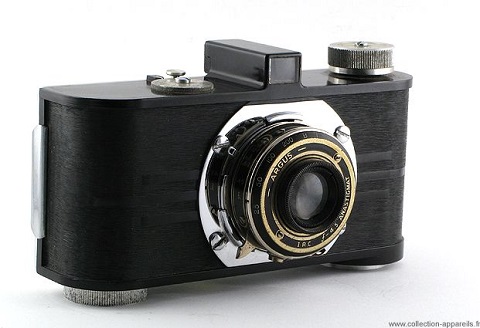
And what wonderful boxes they were! Before the onslaught of identical, cheap consumer point-and-shoots and (gasp!) disposables, or the utilitarian bricks of professional gear, the camera was very often a work of art in its own right. Today, we bring you a sampling of these objets—elegant, intricate, streamlined, and downright adorable. These are but a tiny fraction of the vintage camera treasures you’ll find represented at Collection Appareils, an online reference of 10,000 analog cameras run by Sylvain Halgand, a Frenchman sorely afflicted with the “insidious disease” of collecting.
Witness at the top the Photosphere No. 1, manufactured by the Compagnie Francaise de Photographie in 1899—a truly beautiful artifact. No less stylish, but far more camera-like to our eyes, see the Argus A above. Made in the U.S. between 1936 and 1941, this may have been the most popular 35mm of all time. Though not as well known as the Leica A, “it’s a safe bet that Argus sold more cameras in their first twenty years than Leica has sold in their first 70 years.”
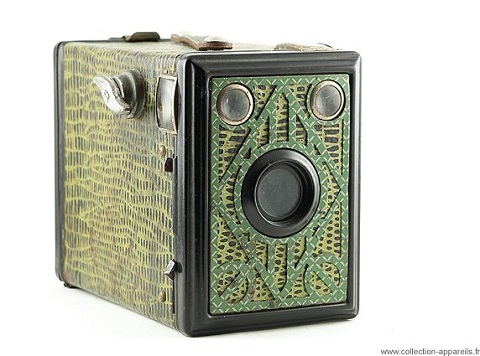
Above, we have the first “point and shoot,” the Gap Box 6x9, a curiously attractive device made in France in 1950. This camera “played a very important role by making photography accessible to the general public,” allowing “anyone to take pictures at the lowest price and in the most simple way.”
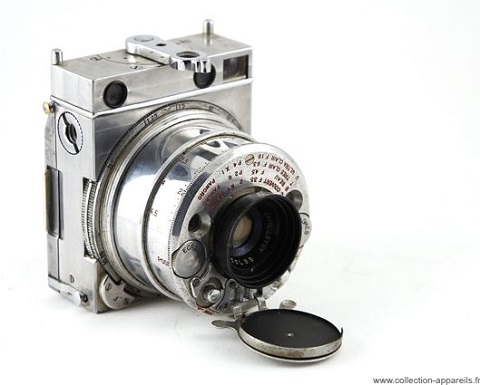
Then there are the stylized and the streamlined. Just above, see a very fine machine called The Compass, manufactured by Swiss watchmaker Le Coultre between 1937 and 1940. And below, gaze upon the graceful Haneel Tri-Vision, made in Los Angeles in 1946.
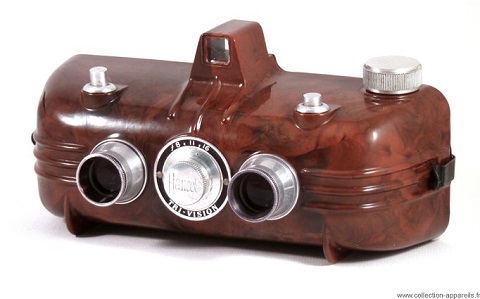
Almost equally appealing in their design simplicity are the irresistibly cute miniature cameras, such as the “Mickey Mouse” below. Manufactured in Germany in 1958, these tiny things—despite the “copyright” notice on the lens—may have disappeared quickly “due to them not actually being sanctioned by the Disney Corporation.” They were, however, sold with a “large cardboard Mickey Mouse that ‘held’ the camera.”
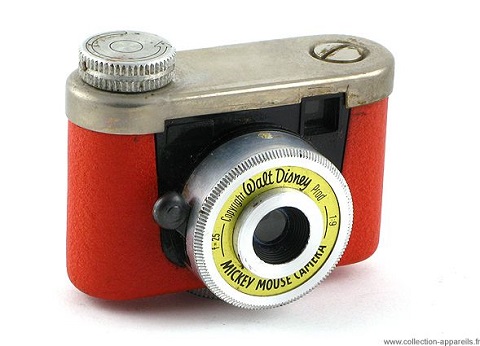
See also the Coronet Midget. Made in England in 1934, this 5‑shilling camera “must be one of the most popular of all small cameras to collect.” The company marketed its own 6‑exposure film for the Midget, which came in a choice of five colors.
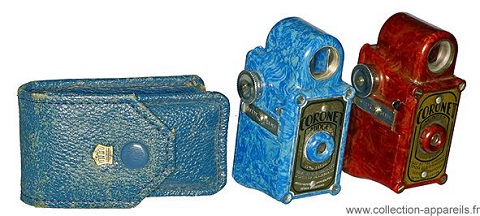

From the couture to the high-tech to the quirky and inventive (like the Lark “Sardine Can” below), the French vintage camera archive makes available a visual history of the camera that may exist nowhere else. It is the history of an object that defined the 20th century, and that may fully disappear sometime soon in the 21st. And while we can spend several hours a day marveling over the products of these fine devices, it’s a rare treat to see the things themselves in such an astonishing variety of shapes, sizes, colors, and degrees of design ingenuity. Take some time to get acquainted with the evolution of the handheld camera before digital technology finally renders it extinct.
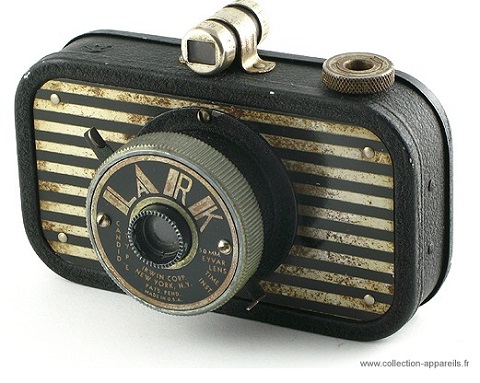
Via Laughing Squid/ Messy Nessy Chic/PetaPixel
Images courtesy of Collection Appareils.
Related Content:
Yale Launches an Archive of 170,000 Photographs Documenting the Great Depression
Alfred Stieglitz: The Eloquent Eye, a Revealing Look at “The Father of Modern Photography”
Josh Jones is a writer and musician based in Durham, NC. Follow him at @jdmagness


“Analog”? I think you mean “film”. Here is the heart of an analog camera-
http://en.wikipedia.org/wiki/Video_camera_tube
Beautiful and clever.
amazing history !!!
Hi I have found a French world war 2 camera in my dads loft I want to see but need advice can you help
Quite a fine collection it is, Thanks for the share!!